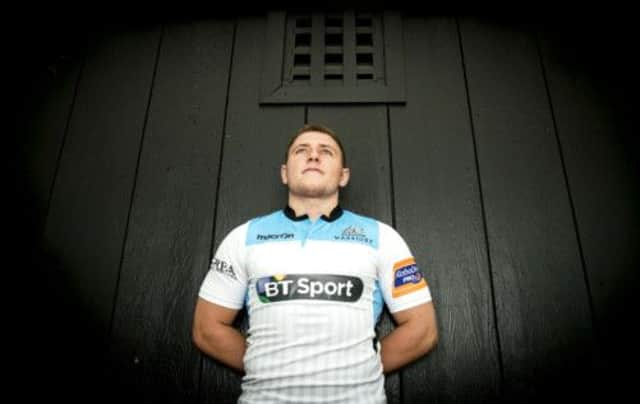Duncan Weir has put his recovery time to good use


One is Duncan Weir, the 22-year-old stand-off at Glasgow who would have been in South Africa but for a broken leg suffered in the final home match of the season, and is now focused on turning promising development into convincing consistency for the Warriors and Scotland from the start of the new season.
The injury was cruel timing for Weir who, like his rival for club and country, Ruaridh Jackson, has had his progress and learning of the pro game hampered at key moments by injury. As a result, both players continue to become stronger, fitter, faster and more skilled, but desperately needing the game management education that only match hours in the most severe intensity can bring.
Advertisement
Hide AdAdvertisement
Hide AdBoth have already, however, become masters at plucking positives from the injury setbacks, and so while Jackson is on a similar recovery time-frame from a shoulder injury suffered on the South Africa tour, Weir has been soaking up Super Rugby lessons.
He explained: “It was frustrating, especially coming at the business end of the season. You want to be playing in the semi-final and be fit to go on the Scotland tour as well, but it gave me a period to get away and think about what’s needed from a stand-off.
“The Super 15 was on at the time so I watched the Super 15 and learned from it. That gave me the opportunity to fine-tune what a ten needs and to provide to a team. I like watching the Queensland Reds – Will Genia and Quade Cooper are always exciting. And, of course, the Chiefs are really clinical with what they produce on the pitch as well.
“The tens [Cooper and Aaron Cruden] are quite different, but their qualities are there to see. You’d love to show your skills the way Quade does, but Aaron Cruden is also a very steady player and the Chiefs put the ball in the right places, and he applies pressure on the opposition. He is also very, very good at linking up and following his pass, looking for second touches, which is something that I thought I developed last season from previous seasons and is something I’ll be looking to improve again.
“Once you have setbacks it’s about looking at positives and what you can do to make yourself a better player when you get back on the pitch, and I feel that I’ve done that. I understand my role within the team a lot better now.
“Turning 22, and getting a bit older, I’m coming into my fourth season in professional rugby and so it’s about time I stepped up and became a real man in the team, and ‘kill the boy’ as big Al [Kellock] says.”
Sport rarely fits moulds of hope and fairness, but if it did Weir and Jackson would now be due slices of good fortune. The idea of that pair pushing each other to new heights of consistency in the coming months is certainly among the most appealing aspects of the new season for coaches, and supporters, of Glasgow and Scotland.